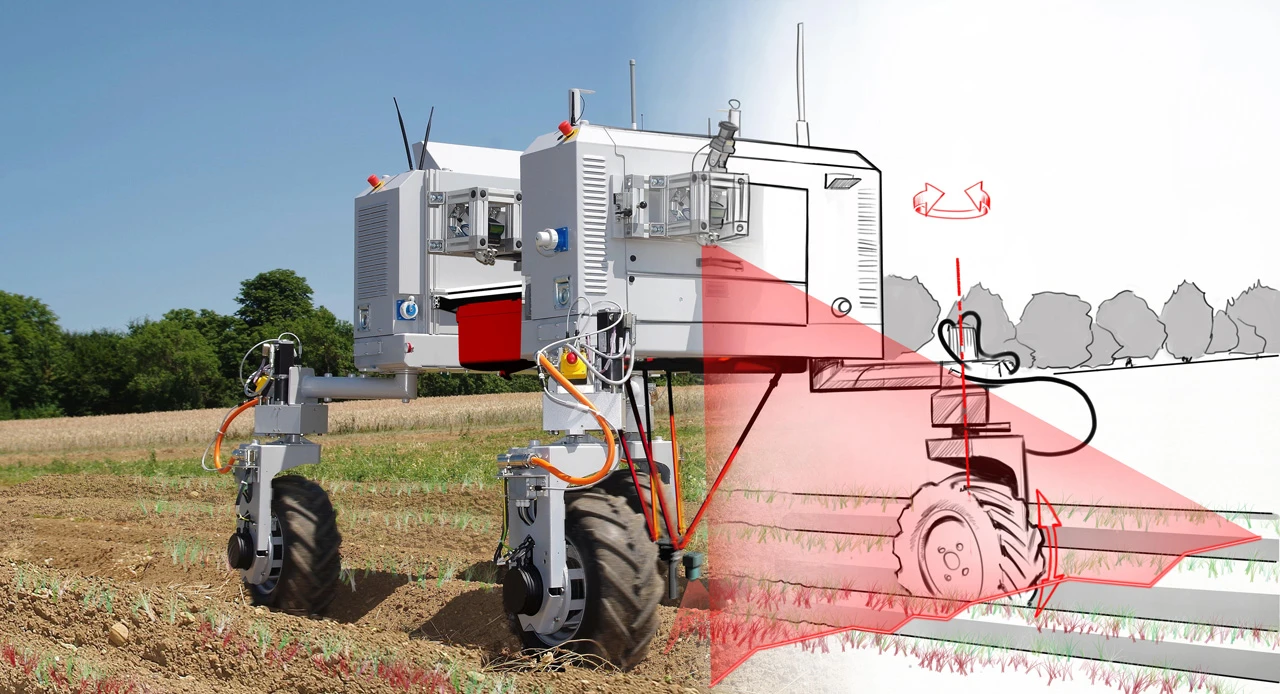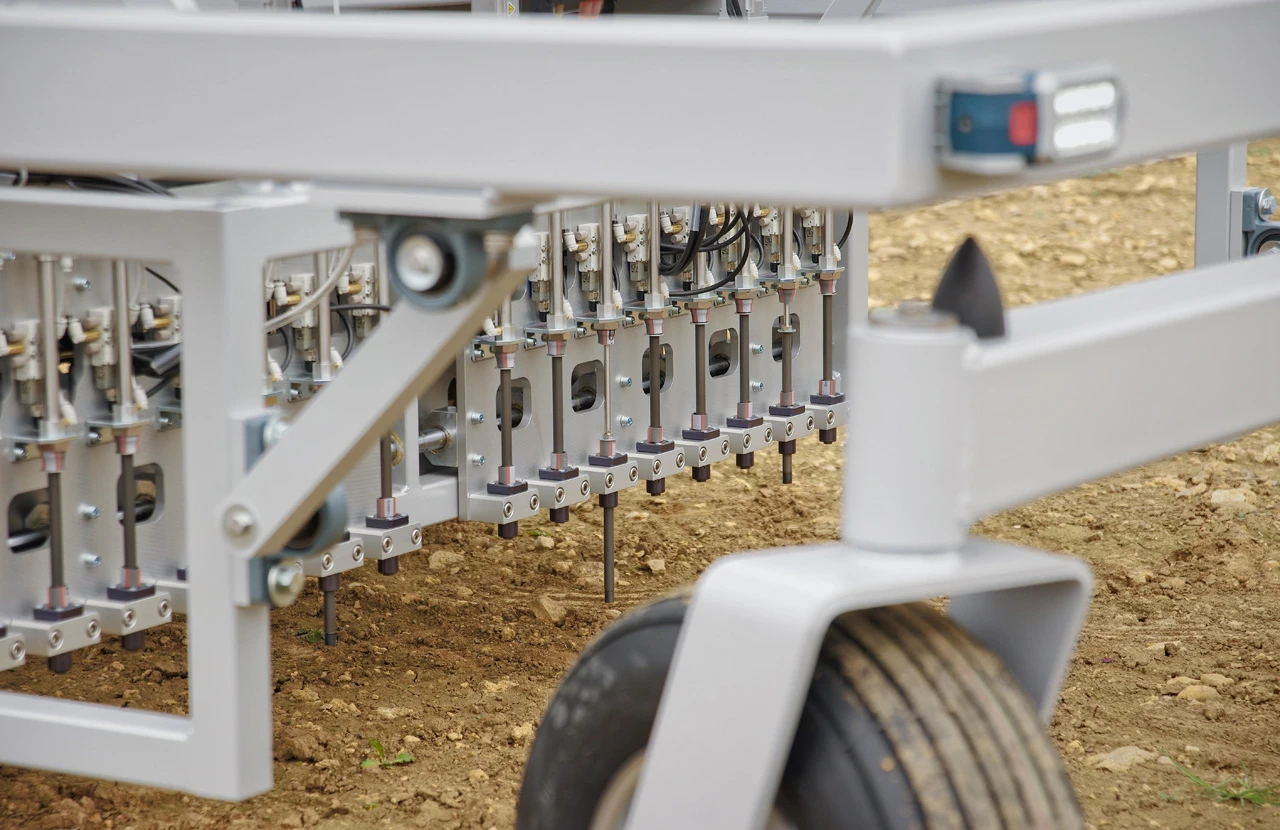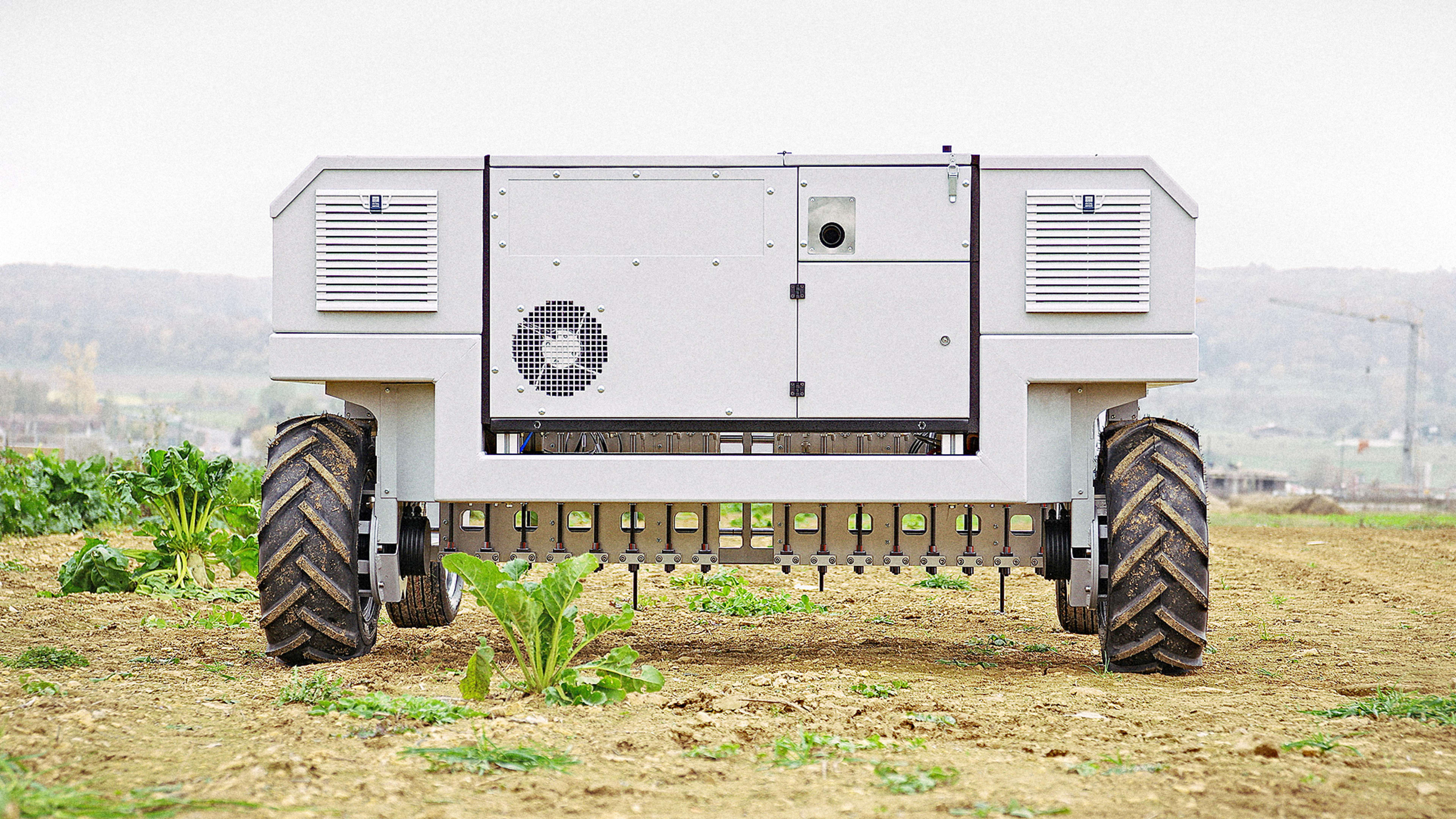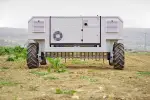The automated weeding machine before you may be the most efficient weeder in history. It can work all day. It destroys two weeds a second. And, it never goes on strike (unless it breaks down).
About the size of a compact car, the BoniRob is being developed by Deepfield Robotics, a startup owned by Bosch in Germany. It knows where it is in a field from satellite positioning and lidar measurements. It destroys weeds by poking them deep into the ground. And it has an 80% accuracy rate (so far).
“For weed treatment, that’s okay because the idea is to run multiple times over the field,” says Amos Albert, general manager of Deepfield. “If it misses the weed one time, maybe next time it recognizes it.”

To help BoniRob separate weeds from crops, Deepfield has taken thousands of images of fields and then annotated each image’s characteristics. The software works with up to 1,000 properties, including shape and light reflectance. “The process itself is very time-consuming but the trained software can accomplish the task in real-time,” Albert says.
Deepfield considered trying to extract weeds, but that proved too time-consuming. BoniRob would have taken up to a second on each weed. When it’s launched, Albert expects the machine to cost about the same as a midsize tractor and to be used for higher-value vegetables, like organic carrots (it’s not suitable for crops like wheat or corn).

As well as weeding, the BoniRob can also be employed for plant research. Plant scientists are constantly coming up with new genetic variations, which they want to test. The robot can check the size of leaves and the shape of fruit and look for signs of insect infestation. “Algorithms analyze the photos taken by scanners and cameras. This automatic screening saves a lot of time and effort,” Albert says.
Though automation could put some farmworkers out of a job, there may be environmental payoffs. The BoniRob should allow farmers to use less or no herbicides. “After discussing this topic with a lot experts, we see there’s a big pain-point regarding the herbicides. And I think the importance of those chemicals will continue to increase [to consumers],” Albert says.
Recognize your brand’s excellence by applying to this year’s Brands That Matter Awards before the early-rate deadline, May 3.









